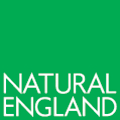Why do we have an archive?
Archived samples are used to study chemical fate and behaviour, to trial new monitoring, and for a wide range of conservation-related studies. Many of these studies are conducted in collaboration with other research groups. Contact us with enquires about accessing archived PBMS samples.
Sample storage: PBMS archived specimens are maintained at -18ºC in a freezer holding more than 37,000 samples (stored in jars and bags in numbered trays) that date back to the late 1960s.
Data: the PBMS database records the tray number and shelf location within the archive for each sample. The carcass or egg reference number relates the sample to provenance, biometric and chemical residue data held on the PBMS database.
Bone analysis: bone samples can be a useful sample type for estimation of long-term exposure to the toxic metal lead (Pb). Bone samples retained by the PBMS are 'cleaned' prior to analysis using flesh eating Dermestes maculates beetles. To see a video of the beetles cleaning a sparrowhawk carcase after post mortem, click on the video below.
Bird post-mortem: we receive up to 400 bird carcases and 200 eggs per year. A post-mortem examination is carried out on each carcass, during which observations (E.g. species, tissue type, sample weight) are recorded and a range of tissue samples are retained for the PBMS archive.
Egg samples: eggs received from licensed collectors are “cracked” and the contents are homogenized prior to storage in the PBMS archive facility. The shells are washed, dried, weighed and labelled with a unique sequential egg reference number. The shells are retained for two years prior to being donated to the National Museums Scotland for cataloguing & archiving.






